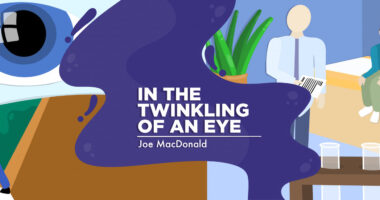Breaking Out of Our Introverted Shells for Advocacy’s Sake

My husband, Jared, and I are quiet, introverted people. We’re both averse to noisy crowds and overstimulating activities. Our idea of a good time is immersing ourselves in hobbies or getting away to a weekend nature retreat.
Although my Myers-Briggs Type Indicator is ENFP, a personality classification that stands for extroverted, intuitive, feeling, and prospecting, which makes me boisterous and free-spirited, I’m still very much withdrawn. I can only act silly and loud around people I know well.
I’ve read that this is common among people of our type. We are known to be the most introverted extroverts around.
When I was in college, I found myself studying for a degree that required me to leave my shell. I had shifted from industrial pharmacy to broadcast communication, believing that it aligned more with my on-and-off passion for writing. Little did I know that I would have to interview strangers or direct films, which pushed me far out of my comfort zone.
Meanwhile, Jared studied business management, although he wanted to study psychology, a situation that made him unhappy. He didn’t think he was outgoing enough to network with other entrepreneurs or promote a business.
Years passed. Jared and I graduated, got married, and started a family. And by an ironic stroke of fate, we ended up starting a business together.
We had no choice but to practice the things we used to fear doing. We had to learn to become extroverted! Initially, it was terrifying, but it had to be done, or we would lose our source of income.
As idealistic people, Jared and I decided that a core value of our business would be transparency. We would strive to be as honest as possible in every situation, even at the risk of being perceived as “weak” or “inept.” We would communicate with our clients as human beings.
Recently, Jared had a knee bleed that put him out of commission for a week. We quickly informed our Instagram store followers via stories that Jared’s hemophilia had flared up. We even posted a video of Jared performing an infusion. Once again, we asked for everyone’s understanding. We also apologized for possible interruptions in our services.
We’ve already done this a number of times in the past. Whenever Jared would have a bad bleed, or whenever I would have a mental breakdown, we’d post about it. Even if it felt uncomfortable, we’d do it anyway.
Thinking about it now, we realize that no one has actually criticized us for opening up about our situation. Many of our devoted followers even send us kind thoughts and prayers. Some have told us about their own chronic conditions and have opened up to us about their silent battles.
Our sales account turned into a safe space where people could communicate in earnest and offer support to one another. And guess what? Talking to other people no longer seems so bad now.
As chronically and mentally ill individuals, Jared and I share the hope of being understood by others. But before that can happen, we must take the initiative and open up. How can people understand us when they don’t even know what we are going through?
These days, Jared and I make an effort to integrate our advocacy into the identity of our business. We are still hesitant to share about our daily struggles, but we try, little by little.
A few days ago, Jared posted a photo slideshow on Instagram about his experience dealing with a knee bleed. He was surprised that many of his friends commented with words of support and encouragement. He told me it felt good to open up, and he promised to do so more often.
I plan to start a vlog about how our family deals with chronic illness in the background of our daily lives. I’m not sure how people will respond to it, or if anyone will even watch it. But remembering how our clients reacted to our recent stories, I realize that I shouldn’t make my fears a stumbling block to trying.
***
Note: Hemophilia News Today is strictly a news and information website about the disease. It does not provide medical advice, diagnosis, or treatment. This content is not intended to be a substitute for professional medical advice, diagnosis, or treatment. Always seek the advice of your physician or another qualified health provider with any questions you may have regarding a medical condition. Never disregard professional medical advice or delay in seeking it because of something you have read on this website. The opinions expressed in this column are not those of Hemophilia News Today or its parent company, Bionews, and are intended to spark discussion about issues pertaining to hemophilia.







Leave a comment
Fill in the required fields to post. Your email address will not be published.